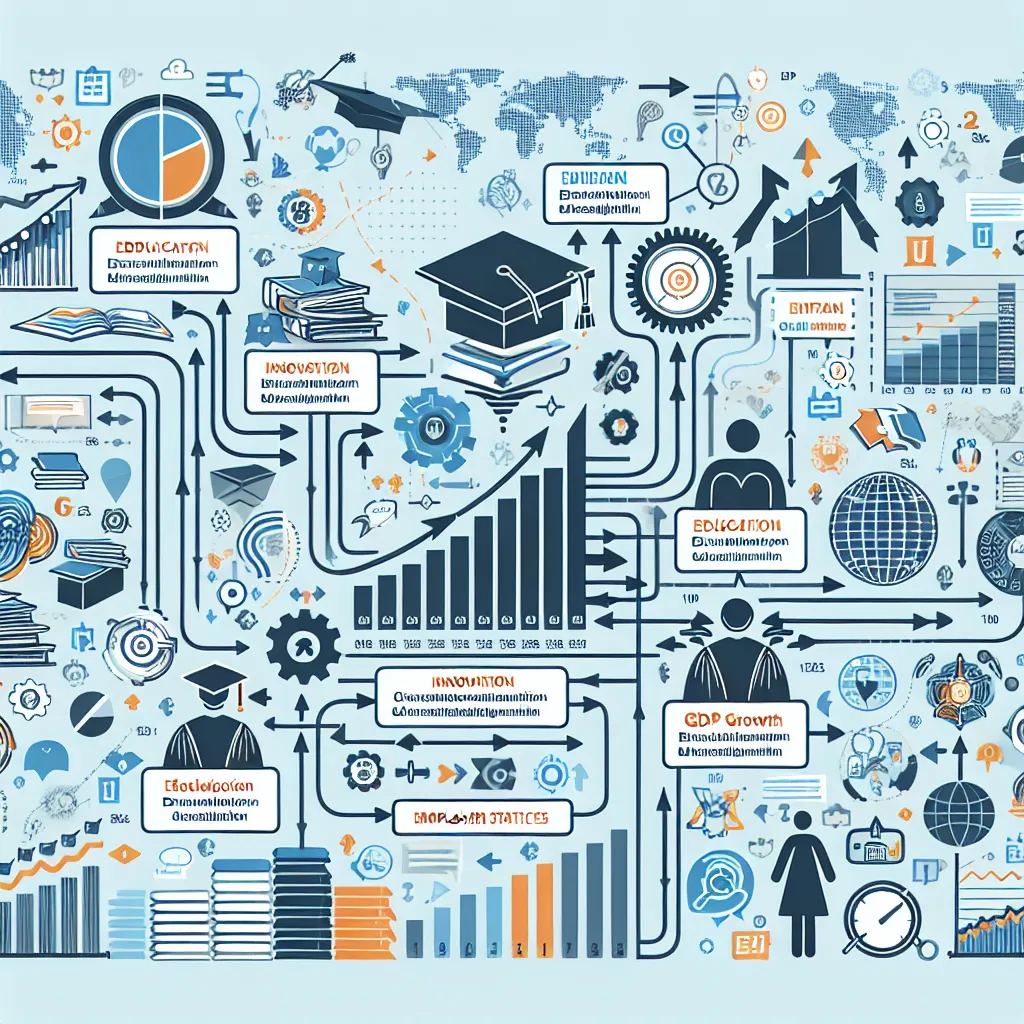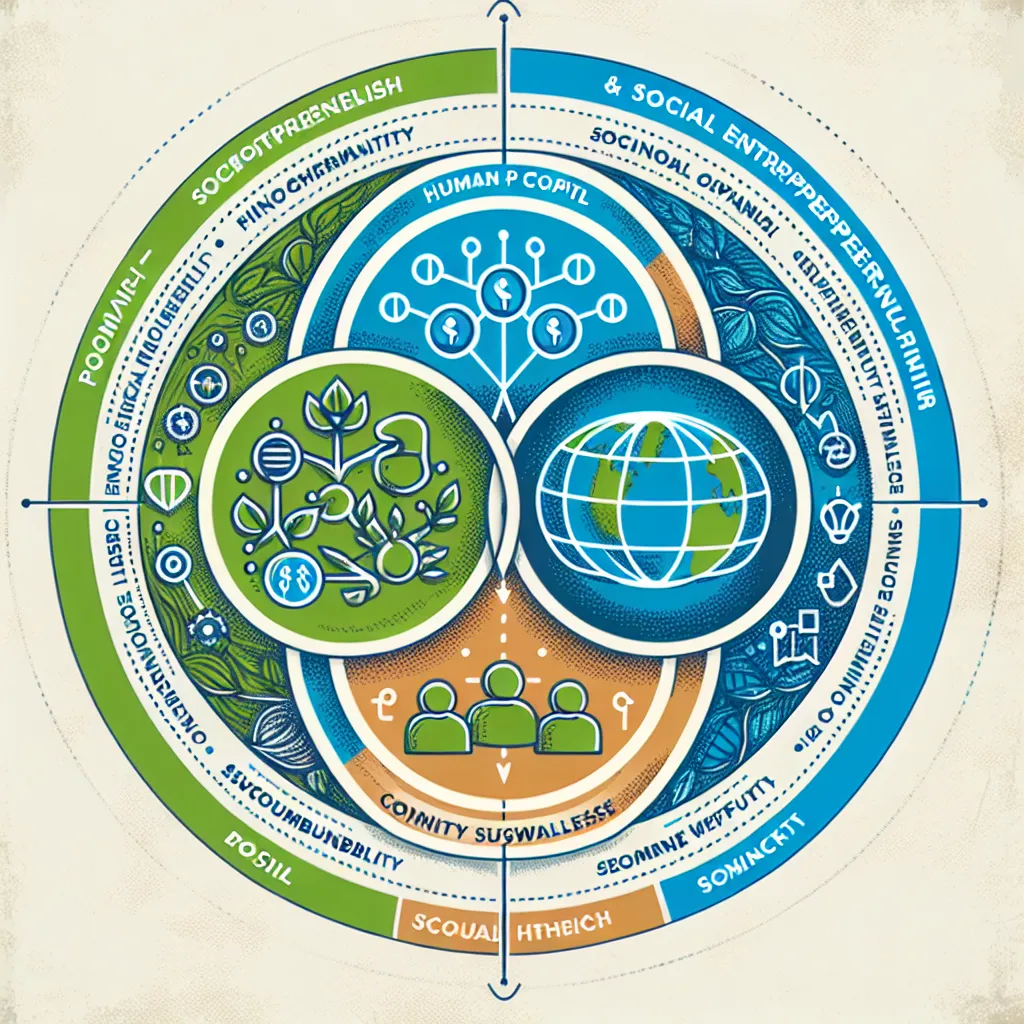As an experienced IELTS instructor, I’m excited to share with you a comprehensive IELTS Reading practice test focused on “The Role of Education in Global Economic Development.” This topic is not only relevant to the IELTS exam but also crucial for understanding the interconnectedness of education and economic growth worldwide.
Nội dung bài viết
- Introduction
- IELTS Reading Test: The Role of Education in Global Economic Development
- Passage 1 – Easy Text
- The Foundation of Economic Growth
- Questions 1-5
- Questions 6-10
- Passage 2 – Medium Text
- The Global Impact of Education on Economic Development
- Questions 11-15
- Questions 16-20
- Passage 3 – Hard Text
- The Multifaceted Dimensions of Education in Shaping Global Economic Trajectories
- Questions 21-26
- Questions 27-31
- Questions 32-35
- Answer Key
- Passage 1
- Passage 2
- Passage 3
 Education and global economy
Education and global economy
Introduction
The IELTS Reading test assesses your ability to understand and analyze complex texts. Today, we’ll explore a set of passages that delve into the vital role of education in driving global economic development. This practice test will help you sharpen your reading skills while gaining insights into this important subject.
IELTS Reading Test: The Role of Education in Global Economic Development
Passage 1 – Easy Text
The Foundation of Economic Growth
Education has long been recognized as a cornerstone of economic development. Countries that invest heavily in their educational systems tend to experience more rapid and sustainable economic growth. This relationship is not merely coincidental; it reflects the fundamental role that human capital plays in driving innovation, productivity, and overall economic performance.
At its core, education equips individuals with the knowledge and skills necessary to participate effectively in the workforce. As economies become increasingly knowledge-based, the demand for highly skilled workers continues to rise. Countries with well-educated populations are better positioned to attract investment, develop new industries, and compete in the global marketplace.
Moreover, education fosters entrepreneurship and innovation, two critical drivers of economic growth. Individuals with higher levels of education are more likely to start businesses, develop new products or services, and implement innovative processes that can boost productivity across various sectors of the economy.
The impact of education on economic development is particularly pronounced in developing countries. Investments in basic education can lead to significant improvements in agricultural productivity, as farmers gain access to new techniques and technologies. Additionally, education plays a crucial role in poverty reduction, as it opens up new employment opportunities and increases earning potential.
However, it’s important to note that the quality of education matters just as much as quantity. Countries must focus not only on increasing enrollment rates but also on improving the relevance and effectiveness of their educational systems. This includes aligning curricula with the needs of the job market, promoting critical thinking and problem-solving skills, and ensuring equal access to educational opportunities for all segments of society.
In conclusion, education serves as a powerful catalyst for economic development, driving growth through multiple channels. As countries continue to navigate the challenges of a rapidly changing global economy, investing in education remains one of the most effective strategies for promoting long-term prosperity and well-being.
Questions 1-5
Do the following statements agree with the information given in the reading passage?
Write:
TRUE if the statement agrees with the information
FALSE if the statement contradicts the information
NOT GIVEN if there is no information on this
- Countries that invest more in education generally experience faster economic growth.
- The demand for highly skilled workers is decreasing in modern economies.
- Education has a significant impact on agricultural productivity in developing countries.
- All countries with high enrollment rates have high-quality education systems.
- Investing in education is considered one of the best strategies for long-term economic prosperity.
Questions 6-10
Complete the sentences below using NO MORE THAN THREE WORDS from the passage for each answer.
- Education equips individuals with knowledge and skills needed to participate in the ____.
- People with higher education levels are more likely to engage in ____ and innovation.
- Education plays a crucial role in ____ in developing countries.
- Countries should focus on improving both the quantity and ____ of education.
- Educational curricula should be aligned with the needs of the ____.
Passage 2 – Medium Text
The Global Impact of Education on Economic Development
The intricate relationship between education and economic development extends far beyond national borders, shaping the global economic landscape in profound ways. As we delve deeper into this complex interplay, it becomes evident that education serves as a pivotal factor in determining a nation’s competitiveness, innovation capacity, and overall economic trajectory in the international arena.
One of the most significant impacts of education on global economic development is its role in fostering technological advancement. Countries with robust educational systems, particularly in science, technology, engineering, and mathematics (STEM) fields, are better equipped to drive technological innovation. This innovation, in turn, fuels economic growth by creating new industries, improving productivity, and enhancing a nation’s position in global value chains. For instance, countries like South Korea and Singapore have leveraged their strong emphasis on STEM education to become global leaders in electronics and biotechnology, respectively.
Moreover, education plays a crucial role in facilitating international trade and economic cooperation. A well-educated workforce is more likely to be proficient in foreign languages, understand diverse cultural contexts, and possess the skills necessary to navigate the complexities of global markets. This enhanced human capital enables countries to participate more effectively in international trade negotiations, form strategic partnerships, and attract foreign direct investment.
The impact of education on global economic development is particularly pronounced in the context of the knowledge economy. As traditional manufacturing jobs increasingly give way to roles that require high levels of cognitive skills and adaptability, countries with education systems that emphasize critical thinking, problem-solving, and lifelong learning are better positioned to thrive. This shift has significant implications for global economic inequality, as countries that fail to adapt their educational approaches risk being left behind in the rapidly evolving global economy.
Furthermore, education serves as a powerful tool for addressing global challenges that have direct economic implications. Climate change, for example, requires a workforce educated in sustainable practices and green technologies. Similarly, global health crises demand professionals with advanced medical knowledge and research capabilities. By investing in education that addresses these global challenges, countries can not only contribute to solving pressing issues but also position themselves as leaders in emerging economic sectors.
However, it’s important to acknowledge that the relationship between education and global economic development is not without complexities and challenges. Brain drain, where highly educated individuals migrate from developing to developed countries, can exacerbate economic disparities. Additionally, the rapid pace of technological change means that education systems must constantly evolve to remain relevant, posing significant challenges for policymakers and educators alike.
In conclusion, the role of education in global economic development is multifaceted and far-reaching. It serves as a catalyst for technological innovation, facilitates international trade and cooperation, drives the knowledge economy, and equips nations to address global challenges. As the world becomes increasingly interconnected, the importance of education in shaping the global economic landscape will only continue to grow.
Questions 11-15
Choose the correct letter, A, B, C, or D.
-
According to the passage, which of the following is NOT mentioned as a way education impacts global economic development?
A) Fostering technological advancement
B) Facilitating international trade
C) Increasing military strength
D) Addressing global challenges -
The passage suggests that countries with strong STEM education are more likely to:
A) Have larger populations
B) Become leaders in specific industries
C) Reduce their international trade
D) Ignore other fields of study -
In the context of the knowledge economy, education systems should emphasize:
A) Traditional manufacturing skills
B) Rote memorization
C) Critical thinking and adaptability
D) Specialization in a single field -
The “brain drain” phenomenon is presented as:
A) A positive outcome of education
B) A challenge that can increase economic disparities
C) A solution to global economic problems
D) Irrelevant to global economic development -
The passage implies that for education to effectively contribute to global economic development, it must:
A) Focus exclusively on STEM fields
B) Remain unchanged over time
C) Adapt to technological changes
D) Prioritize quantity over quality
Questions 16-20
Complete the summary below using words from the box.
adaptability, challenges, cooperation, disparities, innovation, interconnected, languages, migration, productivity, sustainable
Education plays a crucial role in global economic development by fostering technological (16)____ and improving (17)____ in various industries. It also facilitates international trade and economic (18)____ by producing a workforce skilled in foreign (19)____ and cultural understanding. In the knowledge economy, education systems that emphasize critical thinking and (20)____ are better positioned to thrive.
Passage 3 – Hard Text
The Multifaceted Dimensions of Education in Shaping Global Economic Trajectories
The intricate tapestry of global economic development is woven with numerous threads, but perhaps none as vibrant and transformative as education. As we navigate the complexities of the 21st-century global economy, the role of education emerges not merely as a contributor to economic growth, but as a fundamental catalyst that shapes the very fabric of societal progress and international economic dynamics.
At the macroeconomic level, the correlation between educational attainment and economic prosperity has been well-documented through extensive empirical research. However, the mechanisms through which education influences global economic trajectories are far more nuanced and multifaceted than simple causality might suggest. One of the most profound impacts lies in education’s capacity to foster innovation ecosystems. Nations that have successfully cultivated a culture of innovation through their educational institutions have witnessed the emergence of knowledge clusters and innovation hubs that serve as powerful engines of economic growth.
Take, for instance, the phenomenon of Silicon Valley in the United States or the Bangalore tech hub in India. These innovation ecosystems are not mere coincidences but rather the result of deliberate educational policies that emphasize critical thinking, entrepreneurship, and cross-disciplinary collaboration. By fostering an environment where academic research intersects with industry needs, these educational approaches have catalyzed the development of cutting-edge technologies and disruptive business models that reverberate across the global economy.
Moreover, education plays a pivotal role in mitigating economic volatility and enhancing a nation’s resilience to external shocks. Countries with well-educated populations demonstrate greater economic adaptability, as their workforce possesses the cognitive flexibility to navigate changing industry landscapes and embrace emerging technologies. This adaptability is particularly crucial in an era characterized by rapid technological advancements and shifting global value chains.
The impact of education on global economic development is further amplified through its role in promoting social mobility and reducing income inequality. By providing individuals with the skills and knowledge necessary to participate in high-value economic activities, education serves as a powerful equalizer, potentially disrupting entrenched socioeconomic hierarchies. However, it is important to note that this potential is only realized when educational opportunities are equitably distributed and accessible to all segments of society.
In the context of sustainable development, education emerges as a linchpin in achieving long-term economic growth that is both inclusive and environmentally responsible. As the global community grapples with the existential threat of climate change, education plays a crucial role in fostering environmental consciousness and equipping future generations with the skills necessary to develop and implement sustainable technologies and practices.
Furthermore, the globalization of education itself has become a significant economic force. The international education market, encompassing student mobility, transnational education programs, and educational technology platforms, has grown into a multi-billion dollar industry. This not only contributes directly to economic activity but also facilitates the cross-pollination of ideas and the formation of global networks that drive innovation and economic cooperation.
However, it is imperative to acknowledge the challenges and potential pitfalls associated with the education-economy nexus. The commodification of education and the growing influence of market forces on educational institutions raise concerns about the preservation of academic integrity and the equitable distribution of educational opportunities. Additionally, the rapidly evolving skill requirements of the global economy pose significant challenges for educational systems, necessitating continuous adaptation and innovation in curriculum design and pedagogical approaches.
In conclusion, the role of education in global economic development transcends simplistic notions of human capital formation. It is a complex, dynamic force that shapes innovation ecosystems, drives technological progress, fosters social mobility, and underpins sustainable development. As we look to the future, the ability of nations to harness the transformative power of education will be a critical determinant of their economic trajectories and their capacity to contribute to and benefit from the evolving global economic landscape.
Questions 21-26
Complete the summary below.
Choose NO MORE THAN TWO WORDS from the passage for each answer.
Education plays a crucial role in global economic development by fostering (21)____ ecosystems. Examples of these include Silicon Valley and the (22)____ in India. These ecosystems result from educational policies that emphasize critical thinking, entrepreneurship, and (23)____ collaboration. Education also helps in (24)____ economic volatility and enhancing a nation’s resilience to external shocks. Furthermore, it promotes (25)____ and reduces income inequality. In the context of sustainable development, education is essential for achieving long-term economic growth that is both (26)____ and environmentally responsible.
Questions 27-31
Do the following statements agree with the claims of the writer in the reading passage?
Write:
YES if the statement agrees with the claims of the writer
NO if the statement contradicts the claims of the writer
NOT GIVEN if it is impossible to say what the writer thinks about this
- The relationship between education and economic growth is straightforward and easily quantifiable.
- Innovation hubs like Silicon Valley are the result of deliberate educational policies.
- Countries with well-educated populations are always economically stable.
- The international education market has become a significant economic force globally.
- The commodification of education poses no risks to academic integrity.
Questions 32-35
Choose the correct letter, A, B, C, or D.
-
According to the passage, which of the following is NOT mentioned as a way education impacts global economic development?
A) Fostering innovation ecosystems
B) Mitigating economic volatility
C) Promoting social mobility
D) Increasing military spending -
The author suggests that the potential of education to reduce income inequality is realized when:
A) It is focused solely on STEM fields
B) It is equitably distributed and accessible
C) It is privatized and market-driven
D) It prioritizes theoretical knowledge over practical skills -
In the context of sustainable development, education is described as:
A) Irrelevant to environmental concerns
B) A barrier to economic growth
C) Essential for developing sustainable practices
D) Less important than technological advancements -
The passage implies that the future economic success of nations will largely depend on:
A) Their natural resources
B) Their military strength
C) Their ability to resist globalization
D) Their capacity to leverage education for transformation
Answer Key
Passage 1
- TRUE
- FALSE
- TRUE
- FALSE
- TRUE
- workforce
- entrepreneurship
- poverty reduction
- quality
- job market
Passage 2
- C
- B
- C
- B
- C
- innovation
- productivity
- cooperation
- languages
- adaptability
Passage 3
- innovation
- Bangalore tech hub
- cross-disciplinary
- mitigating
- social mobility
- inclusive
- NO
- YES
- NOT GIVEN
- YES
- NO
- D
- B
- C
- D
By practicing with this IELTS Reading test on “The Role of Education in Global Economic Development,” you’ve not only honed your reading skills but also gained valuable insights into this crucial global issue. Remember to apply the strategies we’ve discussed in class, such as skimming for main ideas, scanning for specific information, and carefully managing your time.
For more practice on related topics, you might find these articles helpful:
- The Role of Mental Health Awareness in Education
- How Automation is Transforming Global Industries
- The Role of Technology in Global Poverty Reduction
Keep practicing and stay focused on your IELTS preparation. Good luck with your studies!


